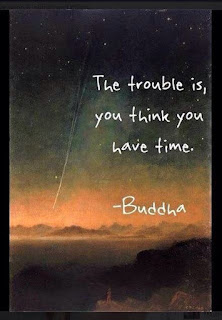HOW SMART ARE YOU REALLY?
"How Smart Are You".
Dissecting Intelligence Depth
Wisdom is a multifaceted quality, and understanding its details can lead to knowledge. Explore the assumptions about how smart you are.
Measuring Your Mental Share
The concept of intelligent measurement has been around for a long time. Find out what intelligence tests reveal about your mental abilities and why they are just one piece of the intelligence puzzle.
Emotional Intelligence - Exceptionally Smart
Wisdom is not just knowledge; It also fills emotional intelligence. Learn how emotional intelligence can affect your relationships and overall well-being.
Learning Mindset - Wisdom and Key
Are you open to learning and making changes? The ability to acquire new skills and knowledge is key to your intelligence. Discover how developing a learning mindset can make you smarter.
Creative Intelligence - The Art of Innovation
Creativity is a different part of intelligence, where the mind makes connections that others might miss. Find out how nurturing your creative side can give you new intelligence.
Social Intelligence - Navigating the Human Labyrinth
Communicating effectively with others is a skill that can greatly affect your personal and professional life. Immerse yourself in the world of social wisdom and power.
(How to write Best Blog)
Nature vs. Nature. Training - Debate on Wisdom
Is intelligence determined by genetics or by environment and experience? To understand how nature and nurture affect our intelligence, we open up an age-old debate
The Smart Art of Lifelong Learning
Your ability to keep learning in an ever-changing world testifies to your intelligence. Explore the art of lifelong learning and how it sharpens your intellect.
Pychological depths released
Intelligence, the tendency that has captured human curiosity for centuries, is a multifaceted concept that goes beyond mere literary intelligence. It encompasses a variety of concepts, each contributing to an overall assessment of how intelligent you really are.
Measuring Your Mental Classification
IQ or Intelligence Quotient is a common metric used to measure intellectual ability. It is designed to test reasoning, problem solving and mathematical skills. However, it is important to note that intelligence tests provide only limited perspective. While they can express a portion of your emotional power, they can’t capture all of human wisdom.
Emotional Intelligence - Smart the Different
While intelligence measures your cognitive abilities, emotional intelligence (EQ) measures your ability to recognize, understand and manage your emotions – EQ is important for developing intimate relationships with yourself and others, releasing stress, and good decisions. Becoming emotionally intelligent is a form of intelligence that goes beyond logic into the realm of empathy and social awareness.
(Content about Side Passive-Income)
Learning Mind - Key to Insight
The ability to learn and adapt is key to your intelligence. In the learning mindset, new experiences, ideas, .and related information. It’s about embracing challenges, seeking knowledge and constantly expanding your skills. By developing a learning mindset, you will become faster and gradually smarter.
(Content About Smart-Money)
Creative Intelligence - The Art of Innovation
Creativity is a different part of intelligence. It’s the ability to think outside the box, build unique relationships and find innovative solutions. Whether you’re an artist, scientist, or entrepreneur, creativity can propel you to new levels of success. Accessing your creative side is key to being truly intelligent.
Life Wisdom - Navigating the Human Labyrinth
Along with social intelligence the ability to communicate well with others. This includes skills such as empathy, communication, and understanding social cues. At both the individual and professional levels, social intelligence plays an important role in relationship building, conflict resolution, and successful cooperation.
Nature vs. Training - Debate on Wisdom
The nature-nurture debate has long fascinated scientists and philosophers. Is intelligence determined primarily by genetics, or by environment and experience? While both contribute to your intelligence, the interaction between nature and nurture is complex and an ongoing evaluation process.
(Content 3 Things I-Love-in-Life)
The Art of Lifelong Learning with Science
In an ever-developing world, intelligence is dynamic rather than static. The art of lifelong learning is a testament to your intelligence. This requires constantly seeking knowledge, adapting to change, and remaining curious. Lifelong learners are better equipped to meet the challenges of the modern world, making prudence the wise course.
In conclusion, the concept of intelligence is a rich and varied fabric. It encompasses a range of areas, from cognitive abilities to emotional intelligence, creativity, and social skills. While IQ tests provide insight into one aspect of intelligence, it is important to recognize that being truly intelligent requires a holistic approach. By developing a learning mindset, embracing creativity, and nurturing social intelligence, you can unleash your full intellectual potential. Wisdom is not a fixed quality but an ever dynamic and expanding journey. The question is not "how smart are you?" But "how smart can you be?"








Comments
Post a Comment